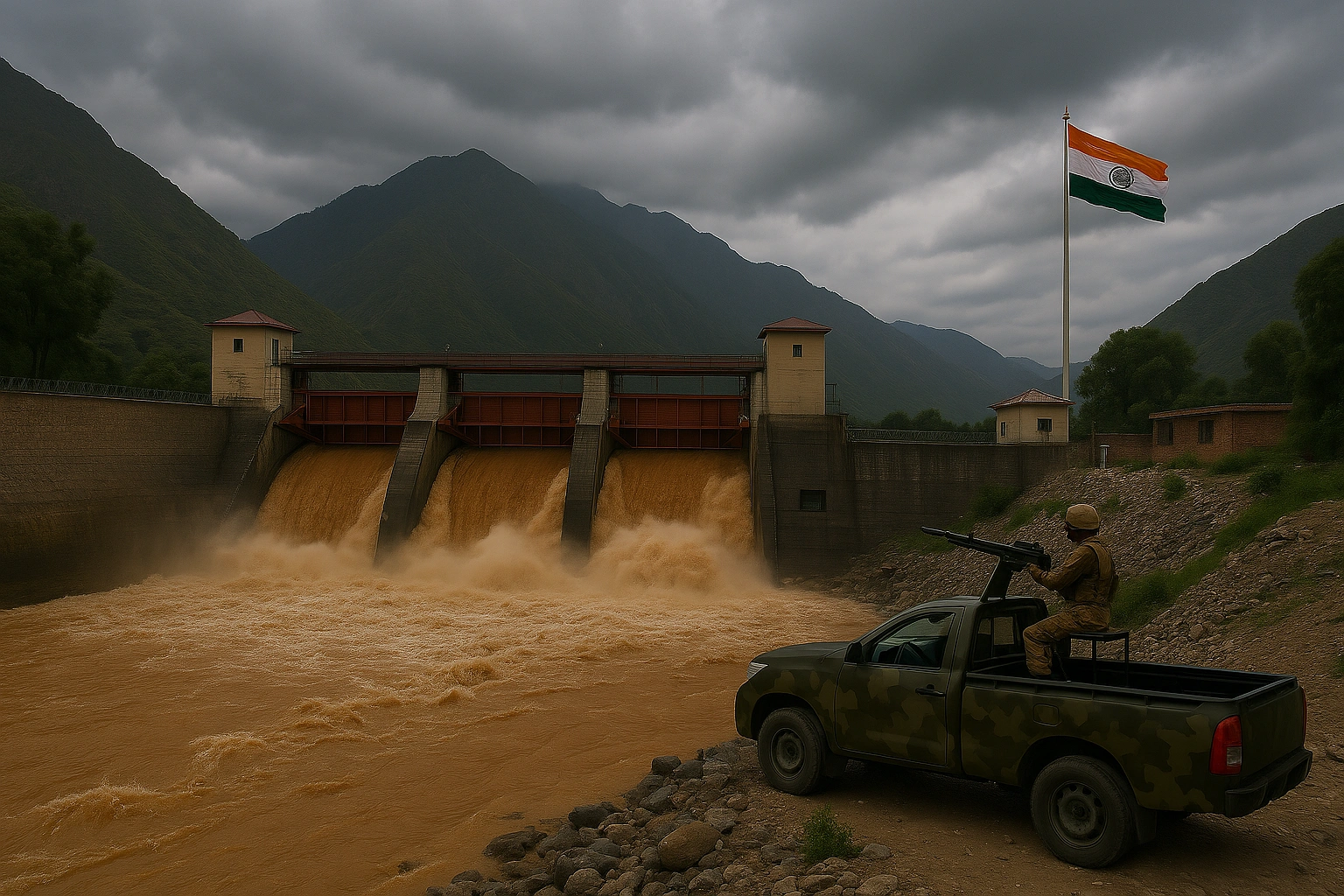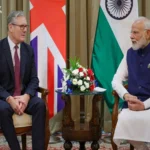Threats by India to cut supply of Indus waters to Pakistan are the latest nail in the coffin as far as the politics of the region is concerned. Instead of the act of strength, these declarations indicate a superficial game to cover the internal unrest and demonstrate power which India cannot have or maintain. The act of issuing a threat in regard of disrupting a common natural source is not only causing a violation of the Indus Waters Treaty (IWT) but also putting under threat the stability of the region and diminishing the international legal norms.
First, one of the most sustainable water-sharing contracts on the globe is the Indus Waters Treaty that was signed in 1960, mediated by the World Bank. It had endured political crises and wars among the two countries with nuclear powers. Nonetheless, the current stance of India, that is, its effort to weaponize water, promises to break that legacy. The rhetoric features of the interruption in Indus water flows have no real capability behind. Instead, it is an empty show that is more intended to evoke internal feelings than cause any actual transformation.
India does not have the engineering infrastructure to divert or deny the Indus water to Pakistan despite such pronouncements. Pakistan is supplied with the three western rivers of the six rivers distributed in the treaty, including Indus, Jhelum and Chenab. These rivers are within the Indian-administered territories, and it is almost impossible to prevent the flow of the rivers unless we build huge and unachievable infrastructure. There are few dams planting on these rivers in India and not a single dam can restrain the huge amounts needed to prove its threats.
Additionally, the slogan of not letting even a single drop reach Pakistan is more of a theatre than the policy. It appeals to a nationalistic domestic audience particularly as there is an increase in domestic restlessness. But this rhetoric hits the wall when it is inclined towards practicality. The hydraulic experience of India is just too small to take any action on these threats.
The leadership in India, in the case, do not appear to be interested in creating valid water infrastructure or emphasis on sustainable solutions, but there also appears to be an interest in emotional engineering. The government requires engagement in the distraction of such failures internally by means of hyper-nationalistic themes and militarization-inspired slogans, such as the notorious phrase by Prime Minister Modi, which politically capitalizes on the theme of blood and water not flowing together, or khoon aur paani saath nahin beh sakte. These are military debacles in Pahalgam, an increase in unemployment, rampant inflation and agrarian crisis. Water in this sense plays the role of a synecdoche; an epicenter of symbolic fighting; and a diversion of actual governance.
Moreover, the current events over the Kishanganga and Ratle Dams indicate a history of Indian breaching the treaty. Both projects transcend the technical constraints outlined in the IWT and have caused grave alarm in Pakistan on decreasing downstream water flow. This is not a conflict between countries alone, it is a violation of international law. Article 18 of the Vienna Convention leaves no room for a unilateral abrogation of a treaty, least of all when humanitarian relations are involved such as in the case with water as a resource. Such action will cripple the entire domestic and international legal system and establish a bad precedent.
It is significant fact that India does not also recognize the mechanisms of dispute resolution at the treaty. India is destroying the credibility of the World Bank-mediated deal by refusing to submit the dispute to arbitration and giving preference to the use of neutral experts instead of the Court of Arbitration as has been challenged by Pakistan. This makes not only the treaty compromise, but also an indication to the international community that India is not a reliable stakeholder in the international system of governance.
Such brinkmanship is devastating in human terms. More than 220 million Pakistani people rely on the Indus Basin as a source of drinking water, irrigating, and food production. A change of any water course might cause a humanitarian disaster of epic scale. Thus, threats of India are not just political demonstration of powers, but provocations with the catastrophic outcomes. Water is not a weapon, rather it is the basic human right. India takes a very important red line into by trying to bully Pakistan based on manipulating resources.
More so, these measures hurt the international reputation of India itself. A responsible regional actor is the image which is spoilt which is the showcase of aggressive and immature diplomacy. India is posturing with its fingers on the trigger of a water war, instead of becoming an upbeat and reliable regional authority; the trend shows that it is an indicator of huge insecurities and a very flimsy regional self. The signal that is being broadcasted to the rest of the world and the neighbours is loud and clear; India is ready to make a compromise on the standing agreements and regional trust levels in the name of short political gain.
To sum up, threats made by India to cut off Indus waters to Pakistan are rather loud as a speech but empty in practice. The infrastructure is non-existent. The engineering capacity is wanting. It lacks political wisdom. Such an effort to adapt a life-giving resource into a poisonous weapon is not an effort of power but a sign of desperation. It speaks of internal weakness of India, rather than of any actual regional strength. India is playing with fire and the question is, does it possess the capability and strength to win that fire?
Unless the world wants to run the risk of having the next stage of water as a source of war it needs to intervene now. This must be done through diplomatic intervention, the rule of law and group pressure to ensure that common resources are tools of collaboration and not tools of war. The era of no words has passed and the good must never be viewed as a sign of weakness, particularly aggression, must be addressed.







